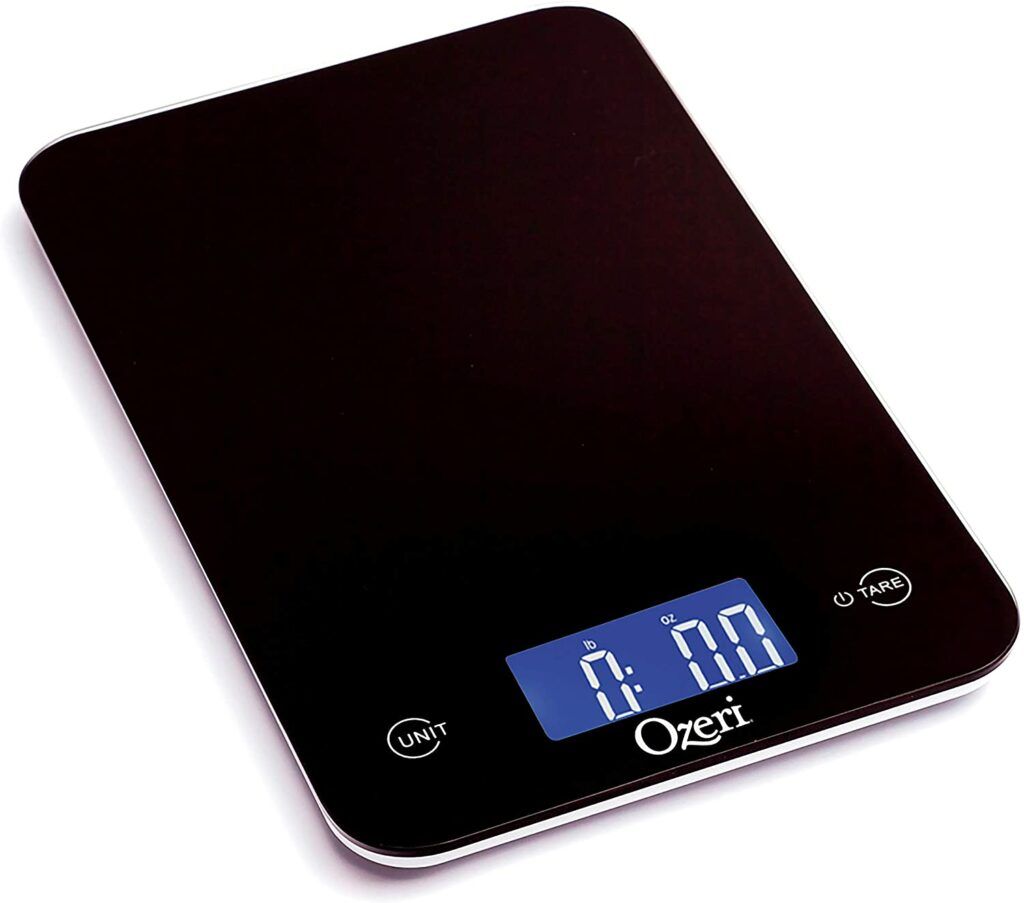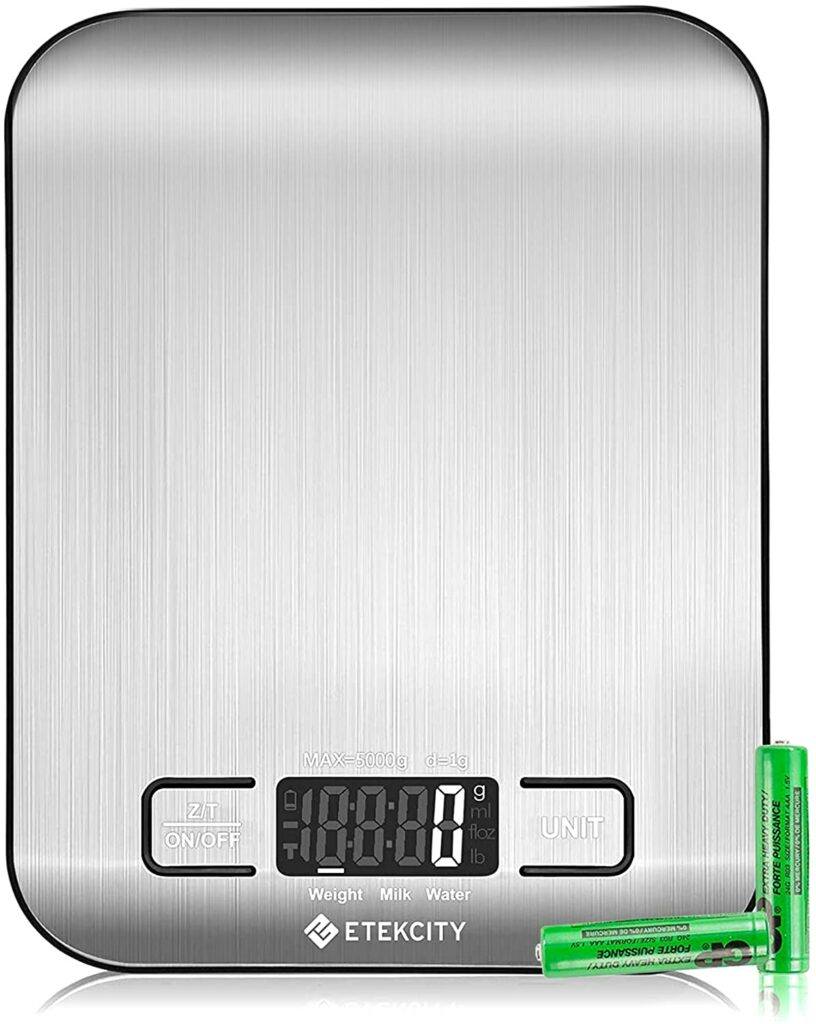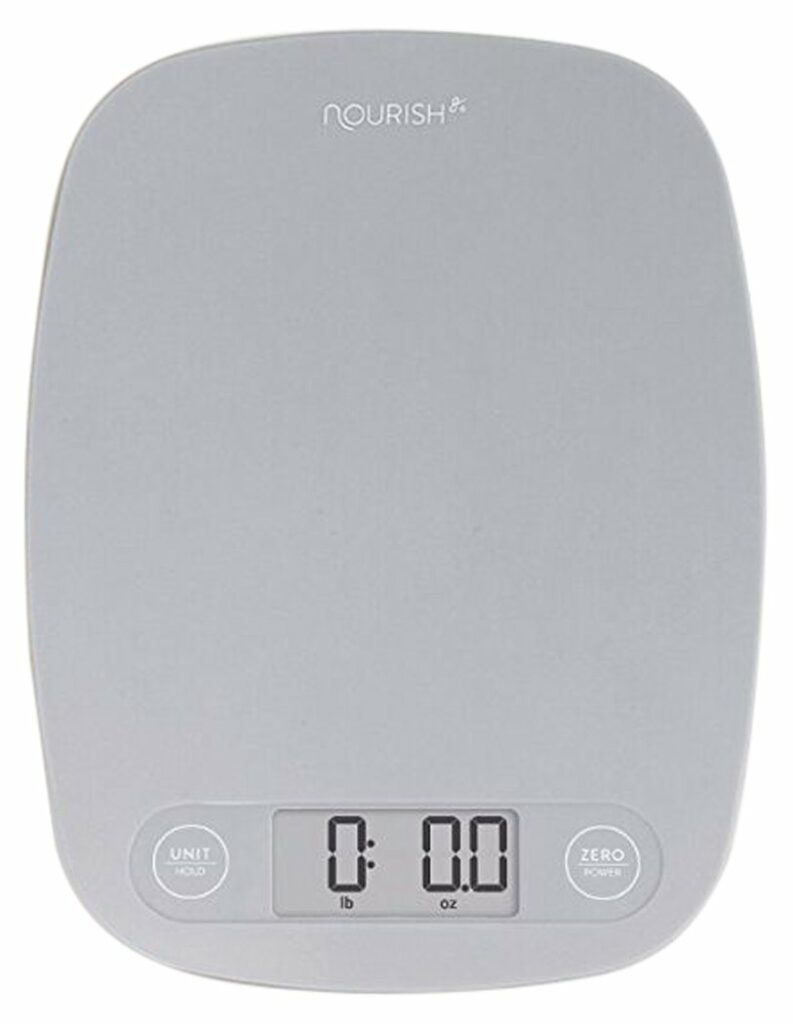Consistency is key, or so they say.
And if you’re looking for a fool-proof way to have a nice cup of coffee, or at least be consistent with brewing your coffee at the same strength every time, then it’s probably time to invest in a good coffee scale!
There are a lot of coffee scales to choose from, so today I’m going to help you navigate through the best coffee scales for home brewing that you can choose from.
And what I’m going to do in this article is go straight into the top choices of coffee scales!
Then after that I’ll talk about why people use them, how to choose one for your needs, the best way to use one, etc.
So to not waste your time right up front if you’re just looking for awesome options for coffee scales (and my personal top pick), here’s my list of best choices available for your coffee weighing needs!
Best Overall Coffee Scale
Hario Drip Scale
==> Click here to see the best deal on the Hario Drip Scale! <==
*I receive commissions from purchases made through product links in this post. I sincerely appreciate if you use my links if you decide to buy something and help me in this way! And if not, no problem. To learn more click here. Coffee cheers!*
Here’s the coffee scale, made for coffee by a leading pour over drip company, Hario.
Hario makes an amazing pour over called the V60, if you didn’t know about it.
The V60 is fast, easy to use, and yields a nice robust coffee. But we’re here to talk about the scale!
Just like their pour over shouts quality and sleekness, so does their coffee scale.
It’s slim, super good looking, and very precise.
One awesome feature is that it has a timer for brewing, right alongside the weight display. It also has a longer auto-off so you can take your time more.
When the timer is active, the auto-off feature doesn’t kick in until you turn it off yourself.
And as we’d all expect quality from Hario, they certainly deliver with super precise measurements down to 0.1 grams.
One of the only cons about the Hario scale is that it only measures in grams. But the good thing is that many recipes and instructions give coffee measurements in grams.
You can’t go wrong with this scale, it’s an awesome option made for coffee, by people who know good coffee.
The Most Stylish Scale
Ozeri Touch Scale
==> Click here to see the best deal on the Ozeri Touch Scale! <==
This one has some pretty great perks to it.
Unlike the Hario, this one is very inexpensive!
It’s small, stylish and sleek.
The tempered glass and touch sensitive buttons also make this one easy to clean, which is always a nice thing.
But a two-sided coin about Ozeri Touch is that it runs on Lithium 3V batteries.
These are good batteries and they last longer than AAA batteries. But on the other hand, they are more expensive than AAA batteries also, should you have to replace them.
Lithium 3V batteries are still relatively inexpensive in the long run though.
This is a durable, inexpensive scale and could easily be the top choice for many of you reading because of its great perks! It’s another one you really can’t go wrong with.
Another Stylish Option
Etekcity Digital Kitchen Scale
==> Click here to see the best deal on the Etekcity Digital Kitchen Scale! <==
While the name sounds pretty weird, at least to me, here’s another awesome option for those looking to weight their grounds for their morning Joe.
This is also another sleek and stylish option, and particularly for those who want another color other than black.
This is a stainless steel digital scale that has a cool looking purple display.
It’s also small and inexpensive like the Ozeri Touch, but unlike the Ozeri Touch, this one uses AAA batteries that are included with purchase.
So for those who want more of an all-inclusive scale, this would be a good option to consider. You don’t have to but any extra batteries or anything.
It’s also durable and easy to clean, being made with stainless steel.
But the biggest bummer about the Etekcity scale is that it’s not as precise as the others.
You need to get to about 2 grams for it to be able to have a weight reading, which can make it difficult or frustrating if you’re looking for a very precise measurement.
Most Popular Option
Greater Goods Digital Scale
==> Click here to see the best deal on the Greater Goods Digital Scale! <==
With over 110,000 ratings on Amazon and an average of 4.5 out of 5 stars, I think we can say that this is the popular option!
And just as a pro tip, it comes in different color options, but if you get the ash grey color like in my link above, it’s the least expensive option, about $5 less than most other options.
Anyway, this scale also has a very nice look and style, and the display is pretty large which is convenient.
It measures in grams, and ounces and pounds.
The Greater Goods Digital Scale comes with 4 sensors, so it’s accurate within 1 gram or 0.1 ounce.
It also has an easy to clean plastic surface with touch buttons that support up to 11 pounds. And an extra battery is included.
This is an all-around fine scale, and it’s yet another budget option that has tons of good reviews!
Why Use A Coffee Scale?
Now that you’ve seen a list of the best scales for your home coffee brewing use, let’s look at why it can be good to use a coffee scale.
I’m personally not a measure-it-out kind of person, I’m a “do it by eye” kind of guy, and I think making coffee is more fun that way. But in this article that doesn’t matter so much, so let me tell you why it’s good to use a coffee scale!
I already mentioned it in the opening sentence of this whole article, and you may have guessed it anyway.
It’s all about consistency.
Do you ever experience where sometimes you’ll make a cup of coffee and it’s amazing, and sometimes you make a cup of coffee the “exact same” way and it’s, well… less than amazing?
There are actually many different factors for the answer, there’s not just one simple reason.
But, one of the big reasons is probably inconsistency in your amount of coffee grounds you’re using.
The truth is, measuring by grams rather than just “coffee scoops” is much more precise.
Is it heaping scoop, or level? Are you making sure to differentiate between ground coffee and whole bean when you measure? How dense is your scoop of coffee today compared to yesterday?
If you weight your coffee in grams with a scale, you’re taking any question out about it, if it will be the right measurement or not.
This will help you use more energy on other factors to make your home brewed coffee delicious, like water temperature, grind size, extraction and working with your specific brew method.
Choosing The Best Coffee Scale
So, you have a great coffee maker and coffee grinder… now what?
Well, you may want to invest in a coffee scale if you haven’t already!
When it comes to accurate, barista-level coffee making (if that’s what you’re looking for), then a coffee scale is definitely the other major piece of the puzzle in the equation.
It will make your coffee brewing take just a tiny bit longer than without a scale, but the consistency you get and the joy of not having to wonder how your coffee will taste will be worth it.
There are some things to consider when looking at the best coffee scale for you personally, and here are some of the tops ones…
Precision
Ok, this one’s important!
More than price or size or any of the other stuff, this is the most important factor!
Because if your scale isn’t accurate or precise, you might’ve wasted money and time, unfortunately.
The thing is, some scales won’t show measurements of less than 1 gram, and some might not show decimals.
This might not be a huge problem because usually the grams in coffee making are rounded out to round numbers with no decimals. But even so, it’s just a good idea to be fairly sure that you’re getting a scale that’s accurate and can do small measurements.
Size
Another thing to think about, and especially when it comes to storage in your kitchen and how much space you have, also for taking your scale with you on camping trips, etc… is the size.
Coffee Scales can range in size from a medium or large size phone to about the size of a magazine.
The size is important because if it’s either too big or too small to suit your needs, it may end up being neglected.
And I don’t think they get too sad or lonely if they’re not used, but it’s definitely a bummer if you get one but lose the motivation because you have to put it away a lot or it’s a pain for storage, or another reason due to its size.
Style
Maybe one of the more vain factors in choosing the best fit for you, but then again maybe not.
In my opinion, it’s a good idea to choose something you think looks good!
That way maybe you’ll be less prone to wanting to hide it away because it doesn’t compliment your kitchen or living space.
I mean, just because it’s a scale doesn’t mean it has to look bad or anything. I think all the options I’ve listed in this article for you are pretty good looking… especially the Ozeri Touch.
Battery Life
Many of the scales you can find aren’t actually designed for coffee.
And that’s not a huge problem really.
But, one problem from that is that they come with an auto-off feature to try and save battery life. It’s nice to save battery life, sure, but it’s not nice to have your coffee weighing interrupted, especially if you’re doing pour over and need the timer to work the whole time!
Consider the auto-off function on the scale you’re looking at, or consider if you want something that just plugs in.
How Do I Use A Coffee Scale?
Well, I’m glad you asked!
Maybe you didn’t, but I’m here to help anyway.
Because while it might seem obvious, it can actually be different depending on which brewing method you’re using.
Which is something you may or may not have considered.
The main goal you want is to make it so that you can just use your brewing method on the scale, tare it, and then weight your coffee grounds, so that it’s all ready to go with no extra pouring or transferring.
To tare the scale means to zero out the weight after something has been placed on it. So if you put a coffee cup on the scale and it weighs 12 ounces, for example, you push the tare or zero button and the weight will display as zero even though the cup is on top still.
Here’s a great video from another awesome home coffee brewing website called HomeGrounds about why you should weigh coffee, and how to do it if you’re interested!
And now, here’s how to use a scale with different brew methods…
Automatic Drip Coffee Maker
All you do is put a coffee filter on the scale, tare is so that the weight is at zero, and then add the desired amount of coffee grounds.
Then your coffee filter is all ready to go, just put it in your machine and fire away.
Portable Brewer
There are a lot of what I’d call “portable brewers”, anything from AeroPress to French Press to every kind of pour over.
Let’s just quickly and easily go over all of them.
If you’re using AeroPress or French press, you can set either your AeroPress or French press right on top of the scale, tare it, weigh out your coffee grounds to the desired amount, and both of them will be ready to go! Simple as that.
For Chemex, V60, Melita, or any other kind of pour over, just put the Chemex or V60 or pour over right on top of the scale, tare it, and weigh the coffee grounds to the desired amount.
If it’s any kind of brewing method that weighs a pound or two or is light-weight, you can just put it on the scale and tare it.

Espresso
It’s pretty important to weigh your espresso grounds when it comes to making espresso, and to make sure you have the right amount.
So if you’re weighing it out yourself, put the portafilter on the scale and tare it.
Then weigh out your espresso grounds into the portafilter to the desired amount.
After you’ve weighed out the right amount, carefully take the portafilter off the scale so that none of the grounds fall out, and then tamp the espresso and brew it.
Espresso is the trickiest one to do when weighing your coffee, but the trick is to just be careful that you don’t spill any of the grounds when you’re moving the portafilter.
What’s The Best Coffee To Water Ratio?
This is certainly one of the most important things to know when we’re talking about measuring your coffee grounds for accuracy in brewing.
At first, weighing your coffee will take more time, because you’ll have to get used to how much you want to weigh out according to how much you usually make.
Do you just make one cup for yourself in the morning with pour over? Do you make a whole pot of automatic drip coffee? Do you make a double shot of espresso?
The grams of coffee grounds that you use will be according to how much coffee you make.
But, here’s a great standard to go by…
A coffee to water ration of 1:17.
This means that for every gram of coffee you use, you should use 17 grams of water.
So, if you’re using a pour over and you just want to make a 10 ounce (283.4 gram) cup of coffee for yourself every morning, you’ll want to weigh out 16.6 grams of coffee.
But let’s be nice to ourselves and make it 283 grams of water and 16 grams of coffee. Although, since I just love my coffee nice and strong, I’d probably want to make it 17 grams, but that’s just me personally.
So that’s just one example of what it would look like to weigh out your coffee.
However, the 1:17 ratio is not part of the 10 commandments of coffee or anything. So please, just give it a try if you’d like, and experiment to see what tastes best to you.
And then stick with that.
You have all the freedom you want to brew your coffee as strong or “weak” as you want. Just remember for next time what measurements you use so that you don’t keep starting from scratch.
It’s much easier to weigh it out if you have a set amount of coffee you make every morning/day.
Otherwise, hopefully you’re really good at math and you’re quick with weighing things out, or it can get pretty time consuming!
That’s why I don’t weigh my coffee, even though it would be better and more consistent if I did!
But either way, it’s a good idea to weigh your coffee and get a consistent cuppa.
And if you want more information about coffee measurements and a cool picture to boot, check out this page from Counter Culture Coffee.
Wrapping It Up
The fact is, you don’t need a coffee scale.
But if consistency is your goal and you like doing things accurately and precisely, then yes you really should get one, and you do need one for that!
Just think about your wants and needs, and how you like doing things.
Are you a ‘weigh it out exactly’ kind of person, or a ‘do it by eye’ kind of coffee maker? Feel free to let me know in the comments!
Whether you choose to use a scale or not, here’s to better coffee brewing and enjoying the art and science of it no matter what.
Coffee Cheers!





Comments
No comments yet...